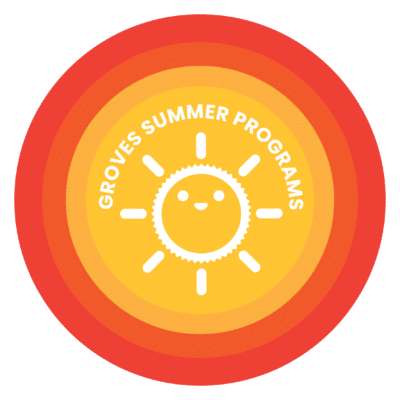“But my child talks just fine…”
“But my child talks just fine…” is often the response I get from parents when I first recommend that they have their student participate in a speech/language assessment. This is such a common misconception, but the truth is, speech is such a small part of what we focus on in speech-language therapy.
At Groves, it’s really the LANGUAGE part of speech-language therapy that our students need. We work with students from Groves Academy and from our community who are diagnosed with specific learning disorders, ADHD/Executive Functioning deficits, or often both. Our goals with students target reading comprehension, vocabulary development, sentence structure/grammar, telling narratives, writing, etc. BUT, before we can target any of those skills, we have to target executive functioning. Executive functioning is, after all, foundational to learning.
In order to learn, students need to be able to attend to the material, organize their ideas, plan ahead, manage their time, be flexible when plans need to change, and be able to reflect on their work to continue to improve. Speech-language therapy at Groves always includes an executive functioning component, as all students, even those without a diagnosed disorder, have difficulty with executive functioning because that part of the brain does not fully develop until adulthood.
Understanding language (both spoken and written) and expressing oneself are also huge keys to success in academic (and really all) environments. Language is involved in every part of a student’s day from following directions during gym class, solving word problems in math, communicating with peers at lunch and recess, writing a paper for social studies or reading the instructions for a project in art class. If a student has a hard time understanding spoken language or expressing themselves effectively, it will affect all parts of their day.
If your student experiences any of the following difficulties, it may be helpful to have them assessed by a speech-language pathologist:
- Uses vague language like “thing” or “stuff” when speaking
- Has trouble answering comprehension questions
- Has a hard to remembering words or using them correctly
- Waits to see what others are doing before getting started
- Gives responses that are not related to the question or aren’t very specific
- Has a limited vocabulary compared to other kids their age
- Gives short/simple answers to complex questions
- Does not tell stories in a logical way or with enough context for you to understand
- Remembers details but not the main idea or “big picture”
- Does not understand jokes/sarcasm
Between 5-10% of children have a language disorder, making it the most common developmental disability of childhood according to the American Speech Language Hearing Association (ASHA). Many students who do not have a language disorder, but have a learning disorder in reading/writing or ADHD/executive functioning deficits, also need support in developing strong language skills.
For more information about language disorders, check out Understood.org and ASHA.org.
For information about speech-language evaluations and/or therapy at Groves Academy please visit our website.
You can also check out recordings of previous Groves virtual community workshops:
How Executive Functioning Deficits Impact Reading, Writing, and Oral Language
Does My Student Need a Speech-Language Evaluation?
Check out Groves Academy on:
LinkedIn | Facebook | YouTube | Twitter | Instagram
Share your news, success story, or meaningful moment about Groves through our online form.

